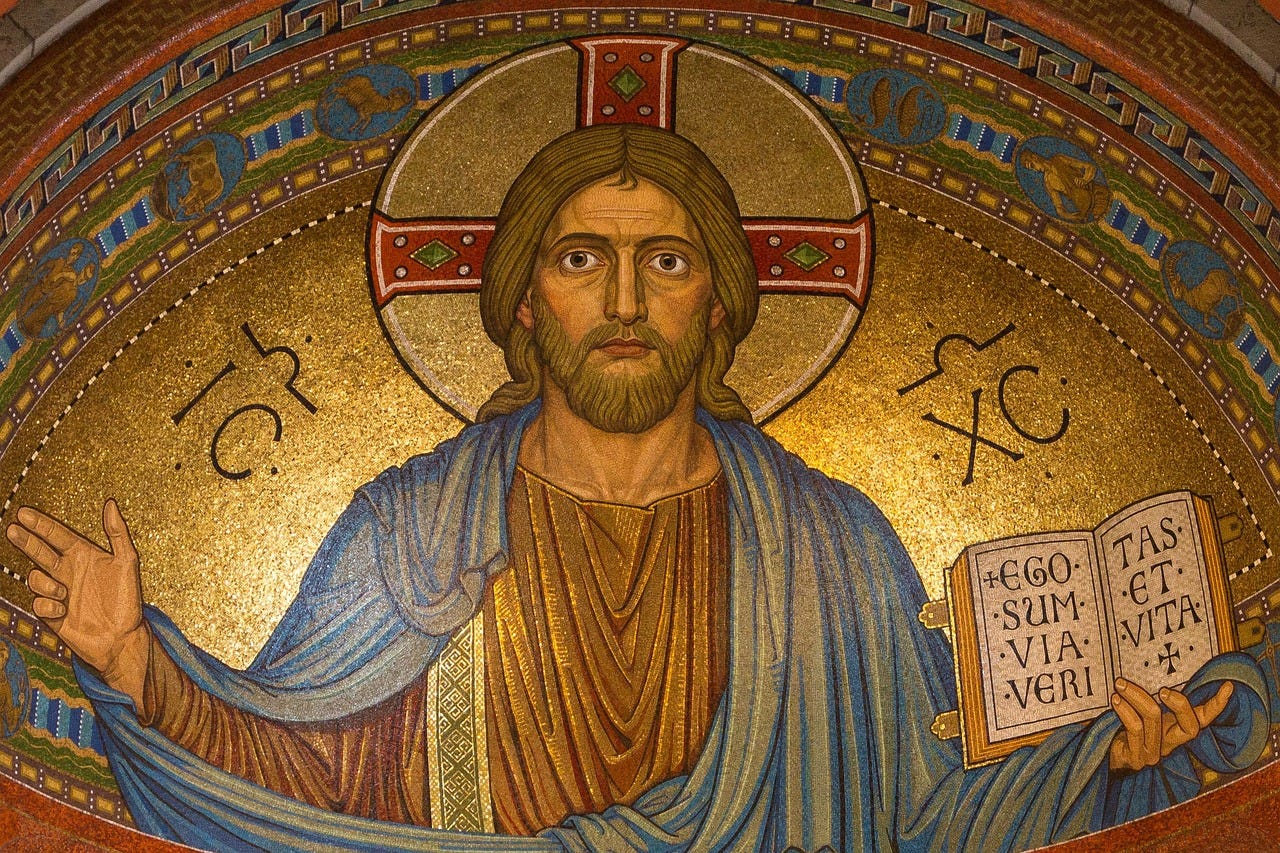By Donald T. Williams
July 19, 2024
“What is truth?” asked cynical Pilate, not realizing that he was standing right in front of the answer. It is precisely because his Prisoner was personally the Way, the Truth, and the Life that certain propositions about that Person are also essential and true. It is because Christian truth is personal that it can be, and is, also propositional. It is because that Person is central to all of reality that truth has a center, a shape, and an arc to which those propositions conform. None of those propositions is rightly seen apart from the context created by its relationship to all the others and to the Center, which is Christ.
We thus come to understand that Christian truth is more than just a random series of soundbites. Christian truth is more than just a disjointed parade of prooftexts. Christian truth is more than just a maudlin set of sentiments. Christian truth is more than just a clever procession of paradoxes.
Christian truth is both personal and propositional: personal because it is incarnate in the Son, propositional because that Son is the Word spoken by the Father before all worlds. Sound Christian theology then is also both personal and propositional: It is truth revealed by a God who cannot lie. It is revealed through His Son who is the Word which cannot lie. And it is applied by a personal Spirit, who is the Spirit of Truth, to human persons to center them on the Person of Christ. That is why its propositional parts, when rightly seen, exert a gravitational attraction on each other (and on the persons who believe them) that pulls them together, surging inexorably toward coherence.
Christ the Son is the central Sun around which all the propositional planets whirl in mathematical precision. Christ the Son is the central Sun around which all the personal planets, following those propositional truths, should whirl in like precision. Because of the Fall, they don’t. Their orbits are eccentric, and they might even slam into each other. Even the redeemed ones don’t, quite. But the gravity of the Son is pulling them back into harmony. They respond to it with faith, with love and with joy.
So elegant is the orbital perfection of these revealed truths (and of the persons who follow them, when no carnal lust or spiritual pride distorts their paths), that they truly constitute a solar system, orienting every gazing eye toward the glorious Son in the center.
Those who fail to see the systematic nature of these truths, created by the gravitational pull of the Son in the center, teach a distorted caricature of Christian doctrine. (Those who teach a distorted caricature of Christian doctrine will tend to live, and cause others to live, a distorted caricature of the Christian life.)
Yet so beautiful and compelling is this system that some of those who are granted to see it fall in love with it, losing sight of what it refers to: the Son it serves, the Savior it glorifies, the Lord to whom it points, and the People who need to be pointed.
These also teach a distorted caricature of Christian doctrine.
Which error is worse? Who knows? Eschew them both!
How then do we rightly pursue the discipline of Christian theology, which is the pursuit of Truth so understood? Some of our fathers in the faith understood. “Learn to see Christ in everything,” advised John Donne, “and then thou needs not take thine eye off of anything.” “You never see the world aright,” said Thomas Traherne, “until you see how a [grain of] sand exhibits the glory and majesty of God.”
Let all your thoughts then ceaselessly orbit around Christ. Let all your meditations ceaselessly seek the relationship of everything to Christ and the relevance of Christ to everything. Let all your affections be focused on the One whom those thoughts and meditations reveal to be altogether lovely, and on other things for His sake. Incarnate those thoughts and meditations in words and deeds. And thus let all your words and all your deeds ceaselessly convey His glory, exhibit His loveliness, and proclaim His grace.
This, and nothing else, is the teaching which can edify and strengthen Christ’s People. This, and nothing else, is the teaching that, in the hands of the Holy Spirit, can counteract the centripetal pull of carnal lust and spiritual pride and make our orbits just. This, and nothing else, is the proclamation that can attract other wandering bodies into orbit around the Son who is the exact radiance of the Father.
This is true theology.
If you are bringing anything else; if you are bringing anything less; just hush.
— Professor Emeritus of Toccoa Falls College and a past president of the International Society of Christian Apologetics, Donald T. Williams, PhD, stays permanently camped out on the borders between serious scholarship and pastoral ministry, theology and literature, Narnia and Middle-earth. He is the author of fourteen books, including Answers from Aslan: The Enduring Apologetics of C. S. Lewis (Tampa: DeWard, 2023).











